General Motors plans to launch 15 new and redesigned car models in China
Through this new market offensive with the introduction of new models, GM is responding to the demands of customers in China for vehicles such as SUVs, minivans and luxury vehicles. With this move, GM is planning to further increase its sales and market share in China. According to the Association of Automobile Manufacturers in China, nationwide sales of vehicles of all manufacturers increased by 3 percent in 2017 to 28.88 million vehicles sold.
GM’s joint ventures in China sold a total of 4.04 million vehicles, an increase of 4.4 percent over the previous year, which is slightly above the Chinese average.
The GM group also announced that a significant 20 new electric vehicles launched worldwide by 2023 are also expected to be sold in China. GM also plans to introduce its “Super Cruise” assistance system in China as a trend towards self-driving and autonomous vehicles.
GM is acting as a joint venture in China under the name “Shanghai General Motors”, or SAIC-GM, where it distributes the Chevrolet, Buick and Cadillac brands on mainland China. According to GM, China has been the Group’s largest market for 6 consecutive years.
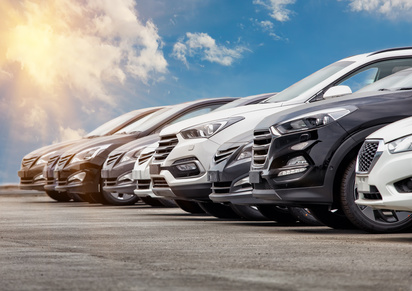
In 2017, SAIC-GM also began exporting China-built vehicles to South America and Southeast Asia. Also last year, the export of the models Buick Envision and the Cadillac CT6 plug-in hybrid to the USA began. However, exports are still a small part of GM’s total production in China.
Components and entire vehicles must obtain China Compulsory Certification (CCC) in the Chinese market. The CCC certification includes factory audits and product tests.
For more information on how CCC certification may affect your company, or for more information about CCC certification in general, the process, and the associated costs, please visit our website and our News Section where you will find current updates twice a week.
Please do not hesitate to contact us for further details and consultation. You can contact us via e-mail, or call us (UK: +44 2071931135, Rest of Europe: +49 69 2713769150, US: +1 773 654-2673).
You can also check out our free CCC-Brochure, which can be downloaded right here as a PDF file or you consult our book (in English) “A Brief Guide to CCC: China Compulsory Certification”, which can be found directly here on Amazon.
Mandatory GB Standards for “Safety Requirements for Electric Vehicles” to be Drafted
The Industry Division of the Chinese Ministry of Industry and Information Technology Equipment organized industry agencies, key enterprises and other units to study the draft versions of new GB standards for “electric vehicle safety requirements”, “electric vehicle lithium-ion battery safety requirements”, “electric bus safety requirements” in an effort to openly solicit opinions from the different relevant parties.
The aim is to strengthen the management of new energy vehicles industry, improve new energy vehicles safety requirements, improve the standards system of new energy vehicles and promote the development of new energy automotive industry.
The deadline for comments on the draft standards through special forms is February 24, 2018.
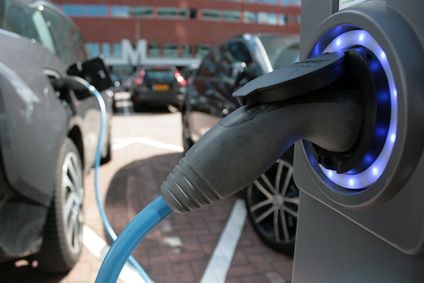
In our News Section we recently published a news that China is currently the world’s largest market for electric mobility. The currently relevant voluntary standards will be replaced by the new mandatory standards.
For more information on how CCC certification may affect your company, or for more information about CCC certification in general, the process and the associated costs, please visit our website and our News Section where you will find updates twice a week.
Please do not hesitate to contact us for further details and consultation. You can contact us via Email, or call us (UK: +44 2071931135, Rest of Europe: +49 69 2713769150, US: +1 773 654-2673).
You can also check out our free CCC-Brochure, which can be downloaded right here as a PDF file, or you can consult our English textbook “A Brief Guide to CCC: China Compulsory Certification”, which can be found directly here on Amazon.
Nawa Technologies develops innovative “Ultra-Fast Carbon Hybrid Batteries”
The novel development of the French technology group NAWA is a combination of carbon nanotubes, conventional ultracapacitors and Li-ion batteries. Lamborghini already uses these components in its V-12 Aventador model. The CEO of Nawa, Ulrik Grape, announced that with this technology, his company is producing exactly what the automotive industry needs right now – a fast-charging energy storage for hybrid cars. However, one disadvantage of the Ultra-Fast Carbon batteries, their storage capacity is only 10-20 percent of a Li-ion battery.
Ultra-Fast Carbon technology is more expensive than conventional batteries in terms of energy density, but mostly uses carbon for its production. This allows easier recycling and has a low impact on the environment unlike other storage technologies that use heavy metals and rare earths.
Constructed as a capacitor, NAWA’s hybrid batteries can be charged and discharged within seconds and have a lifetime of over a million charge cycles. In addition to the planned application in the automotive industry, the batteries can also be used in general industry, aerospace, power tools and small vehicles. The batteries could also play a key role in storing electricity in the so-called smart grids.
The company NAWA Technologies was created by a spin-off from parts of a French state Energy Authority in 2013. NAWA aims at premium car manufacturers from Europe with its hybrid batteries and would like to start serial production in 2022. Lamborghini is already interested in the great potential of these supercapacitors and works with the Massachusetts Institute of Technology (MIT) on a luxury sports car powered entirely by an electric motor. Lamborghini’s concept car “Terzo Millennio” (Third Millennium) launched by Lamborghini last week, uses supercapacitors and Lamborghini already uses low-voltage capacitors in its serial car V-12 Aventador.
Vehicles, including electric vehicles and hybrid vehicles, require CCC certification in China.
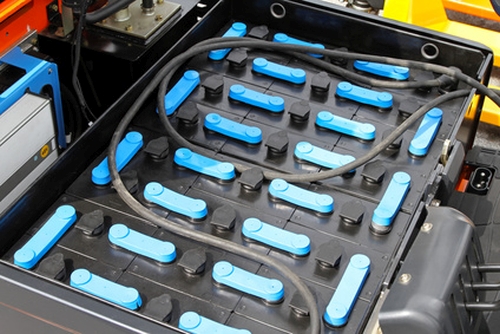
For more information on how CCC certification may affect your company, or for more information about CCC certification in general, the process and the associated costs, please visit our website and our News Section where you will find current updates twice a week.
Please do not hesitate to contact us for further details and consultation. You can contact us via Email, or call us (UK: +44 2071931135, Rest of Europe: +49 69 2713769150, US: +1 773 654-2673).
You can also check out our free CCC-Brochure, which can be downloaded right here as a PDF file, or you can consult our English textbook “A Brief Guide to CCC: China Compulsory Certification”, which can be found directly here on Amazon.
CCAP and MPR China Certification GmbH Will Share a Booth at the 2018 Automechanika Trade Fair in Frankfurt
From September 11 to 15, 2018, vehicle manufacturers, suppliers and service providers will meet in Frankfurt for this year’s Automechanika, the leading international trade fair for equipment, parts, accessories, management & services in the automotive industry.
The China Certification Centre for Automotive Products (CCAP) and the MPR China Certification GmbH will be represented with a shared booth in Hall 6.1, Booth E15.
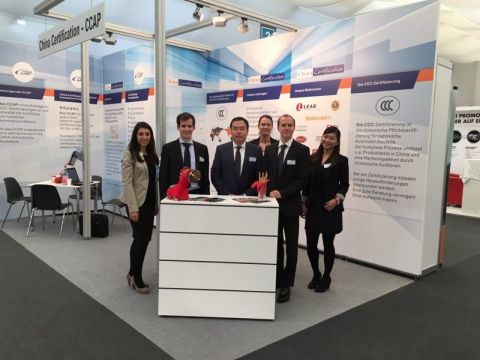
In 2018 the leading biannual trade fair for car suppliers is celebrating its 25th anniversary with many new topics together with the REIFEN (German for tyre) as accompanying event.
In recent years, China has become one of the most important markets for the automotive industry. Numerous automotive components, a few of which include exterior lighting, interior trimming and seats are subject to CCC certification. At the fair the CCAP will take the opportunity to provide visitors with useful first-hand information about the certification process. MPR China Certification GmbH will also be available to answer questions. Since 2005 MPR China Certification GmbH has been actively working closely together with CCAP to help their clients get CCC certification.
If you are interested in CCC certification or would like to find out more about the subject, do not hesitate to visit CCAP and the MPR China Certification GmbH at their shared booth at the Automechanika.
The CCAP team and the MPR China Certification GmbH cordially invite you to their joint booth No. E15 in Hall 6.1.
IZB October 2018 – CCAP and MPR China Certification GmbH will be Present at the International Supplier Fair
MPR China Certification GmbH will be represented at the IZB (International Supplier Fair, www.izb-online.com) together with the China Certification Center for Automotive Products (CCAP). On October 16-18 2018, the Chinese representatives from the CCAP and MPR China Certification GmbH will share a booth at the IZB (exhibition booth 3202 in hall 3).
The international Supplier Fair (IZB) in Wolfsburg is one of the most important communication and business platforms for companies in the automotive industry worldwide. The fair for automotive suppliers takes place every two years. This year the key topic will be: “Think Digital”
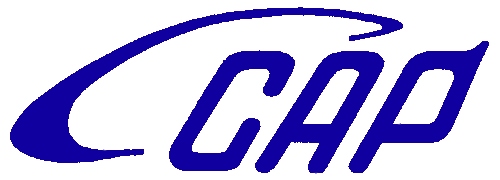
This opportunity will be used by the CCAP to represent China as a certification authority at the fair. The Chinese market is becoming increasingly important and has already become indispensable for many companies. In cooperation with CCAP, MPR China Certification GmbH supports more than 300 audits a year worldwide.
MPR China Certification GmbH has a longstanding close relationship with the CCAP. MPR China Certification was honored by CCAP as the only foreign (non-Chinese) company ever awarded as “Outstanding Certification Company.” In 2016 the CCAP opened their first and only office outside China within the office space of MPR China Certification GmbH in Frankfurt.
Take the opportunity to get to know the CCAP representatives as well as your contact person(s) from MPR China Certification GmbH. If your products are not yet certified for the Chinese market, this is your opportunity to receive information on CCC certification first-hand and to directly interact with key players from the certification authority (CCAP) and MPR China Certification GmbH. We look forward to meeting you there and getting hearing about your upcoming projects.
MPR China Certification GmbH and the CCAP cordially invite you to visit the booth in hall 3, booth 3202.
China is currently the world’s largest market for electric mobility
The sales of electric cars increased by 63 percent worldwide in 2017. With strong demand in China and support from the Chinese government for the relevant infrastructure, more than half of the world’s electric vehicle production is now sold in China. Of the 287,000 vehicles sold in 2017, including electric cars and plug-in hybrids, approximately 150,000 vehicles were sold in China.
In 2016 1.8% of the vehicles sold in China where electric cars and plug-in hybrids. This is the highest market share of electric vehicles worldwide. All major automobile manufacturers such as Jaguar Land Rover and Volvo Cars have announced that they will launch electric versions of their models over the next few years. Hangzhou based Geely Auto, owner of Volvo Cars, plans to discontinue its production of combustion engine based cars in 2020. The company also produces an electric version of the well-known London taxis and it was reported that Uber is also interested in buying 24,000 Volvo electric vehicles.
In October, another major Chinese automotive company, Great Wall Motors, announced a collaboration in the production of electric cars with BMW. The Guangzhou Automobile Group, which has joint ventures with Fiat, Honda, Mitsubishi and Toyota, and is a newcomer to the electric mobility market, has announced its plans to research “smart vehicles” and self-driving vehicles with Chinese technology group Tencent.
The increasing demand for electrically powered vehicles in China is also a result of the incentives offered by the Chinese government. China wants to be a pioneer in electromobility and is expected to ban the sale of combustion based vehicles from 2030 onwards. One reason for this is the increasing air pollution in major Chinese cities. Some cities now give preference to electric vehicles for new registrations. From 2019 it is planned to introduce fixed quotas for electric cars for all vehicles produced in China. In addition, another 12,000 charging stations are to be built in China by 2020.
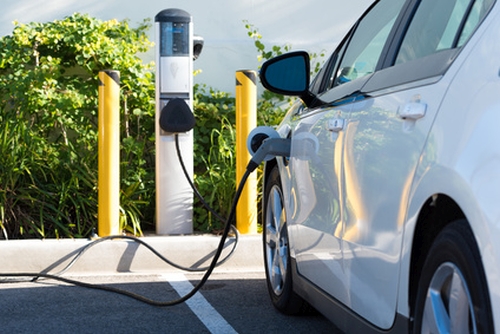
For more information on how CCC certification may affect your company, or for more information about CCC certification in general, the process and the associated costs, please visit our website and our News Section where you will find updates twice a week.
Please do not hesitate to contact us for further details and consultation. You can contact us via Email, or call us (UK: +44 2071931135, Rest of Europe: +49 69 2713769150, US: +1 773 654-2673).
You can also check out our free CCC-Brochure, which can be downloaded right here as a PDF file, or you can consult our English textbook “A Brief Guide to CCC: China Compulsory Certification”, which can be found directly here on Amazon.
Delayed Certification Process due to Chinese New Year Holidays 2018
The Chinese authorities will shut down during the Chinese New Year. A CCAP (China Certification Centre for Automotive Products) press release states that business will be closed from February 14, 2018 to February 26, 2018. The CQC (China Quality Certification Centre) will be closed starting February 12, 2018.
In China, the New Year Celebration is the most important holidays of the year and is officially celebrated for just over one week. This year the public holidays will start on February 15. Many Chinese go on vacation a week before the official start and will return in calendar week 9.
Due to the holidays and business closures, the certification authorities and test laboratories are expected to have delays for CCC applications and ongoing certification processes.
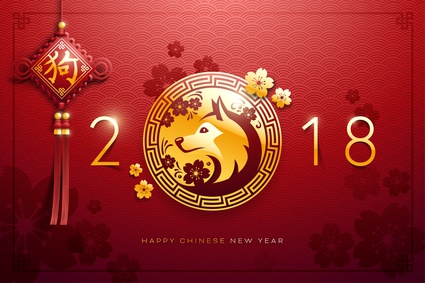
In cooperation with our subsidiaries located in the USA, Europe and China, MPR China Certification GmbH and China Certification Corporation gladly continue to support you with your certification processes during Chinese New Year. Our experience and approach to CCC certification will make the entire process simple and painless.
Information regarding CCC certification, the certification process and their associated costs can be found on our website.
For more detailed information, please download our free booklet “CCC Made Easy” here. You may also consider our book “A Brief Guide to CCC: China Compulsory Certification”, which can be ordered directly on Amazon here.
Please do not hesitate to contact us by phone (UK: +44 2071931135, US: +1 773 654-2673, GER: +49-69-2713769150) or e-mail us with any questions you may have.
Chinese Truck of the Year 2017 – Auman EST was Chosen as Chinese Truck of the Year 2017
On November 17, 2017, the heavy-duty truck “Auman EST” was awarded the title of Chinese Truck of the Year 2017 at the third International Commercial Vehicle Exhibition in Guangzhou.
The truck is the result from a 50/50 joint venture of the Chinese group Foton and the German car manufacturer Daimler AG.
With the Auman Energy Super Truck, the joint venture “Beijing Foton Daimler Automotive Co., Ltd.” (BFDA) was able to win the award. By consistently focusing on the Chinese market and its prevailing needs, BFDA can continue to consolidate its market position with its latest model.
The CEO of BFDA said he was proud of the award and said it is proof for the successful cooperation between the two companies.
With the manufacturer Foton, Daimler has an established and successful partner at his side. While Foton is not one of the best-known manufacturers internationally, the company achieved great national fame in 2005 when it was chosen to transport the manned spacecraft Shenzhou 6.
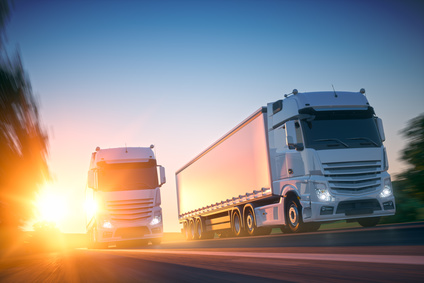
CCC certification is a basic prerequisite for distributing many products such as trucks on the Chinese market. In general, it makes no difference whether vehicles or vehicle parts are exported to China or are manufactured in China.
If you need more information about CCC certification in general, or about the associated costs and process, please do not hesitate to contact us personally.
Write us an e-mail or call us on + 49-69-2713769150. We gladly support you.
Visit our website or our news section for regular updates on the subject of CCC and other certifications for the Chinese market.
Further information on the CCC certification can be found in our free guide book “CCC Made Easy”, which you can download here and in our English textbook “A Brief Guide to CCC: China Compulsory Certification”, which you can order here directly on Amazon.



